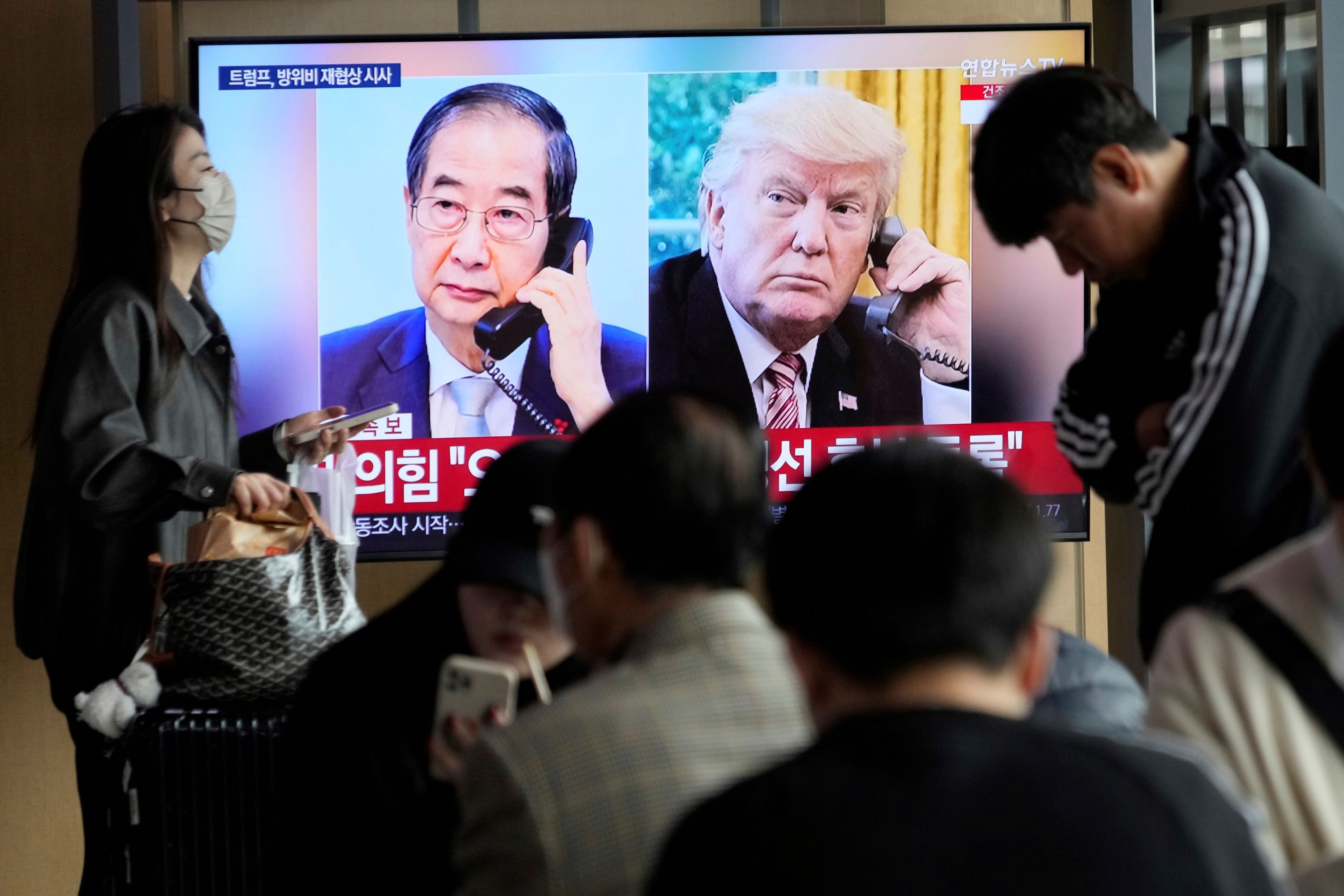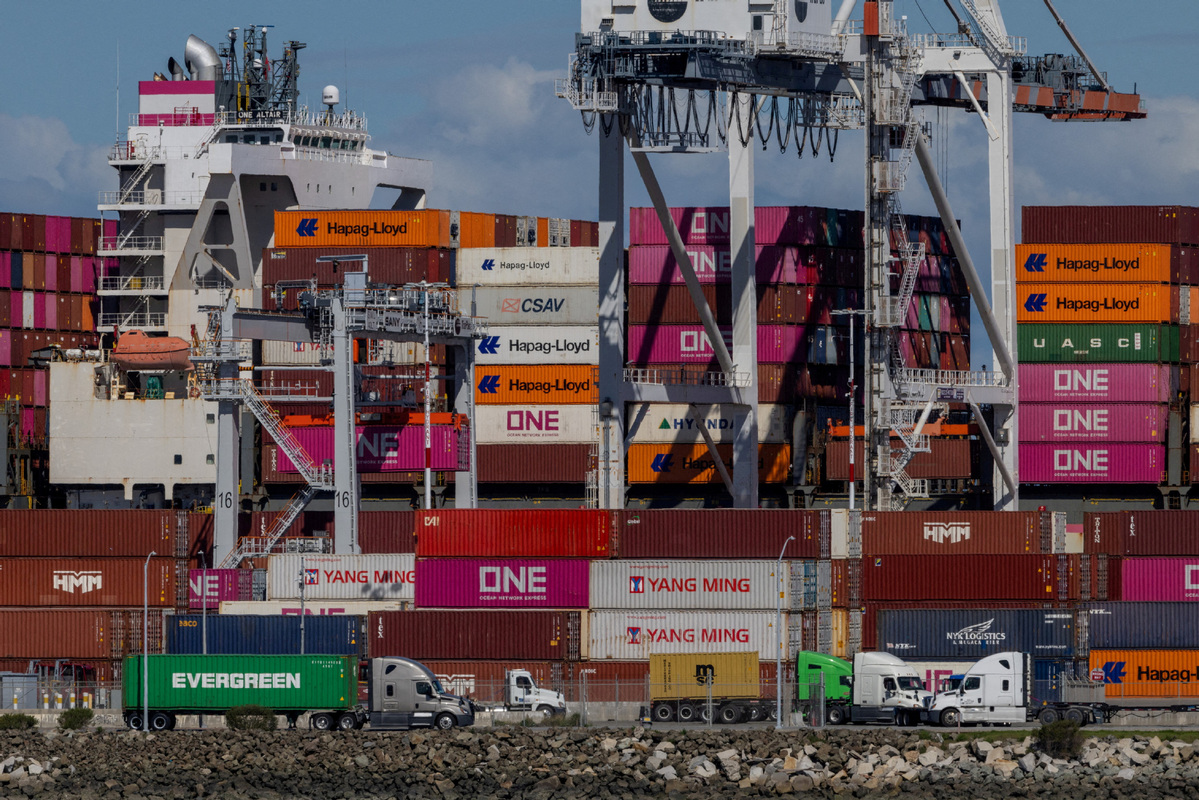
SEOUL/WASHINGTON - South Korea and the United States agreed to craft a trade package aimed at removing new US tariffs before the pause on reciprocal tariffs is lifted in July, Seoul's delegation in Washington said after a first round of trade talks.
The US and South Korea had a "very successful" meeting on Thursday, US Treasury Secretary Scott Bessent said afterwards.
"We may be moving faster than I thought, and we will be talking technical terms as early as next week," he told reporters.
Bessent and US Trade Representative Jamieson Greer met with South Korean Finance Minister Choi Sang-mok and Industry Minister Ahn Duk-geun.
READ MORE: South Korea’s economy shrinks as tariffs darken global outlook
Neither side provided details on possible areas of agreement, and the South Koreans offered a more measured assessment of the talks, calling them a good start but suggesting the process will take some time.
South Korea said in a statement it requested exemptions from reciprocal and item-specific US tariffs, and offered cooperation on shipbuilding and energy and in addressing trade imbalances.
"I think we had a very good start today," Ahn said. "We also agreed to hold working-level talks next week to determine the scope and structure of talks, with the goal of producing a 'July package' by July 8."
Choi said more talks will be held in South Korea on May 15-16 with Greer.
"Discussions will focus on four key areas: tariffs and non-tariff measures, economic security, investment cooperation, and currency policy," Choi said.
Despite US optimism, trade experts expect the two sides to be unlikely to reach a deal before South Korea's June presidential election.
READ MORE: South Korea to seek speedy solution on auto tariffs in US trade talks
"It seems that South Korea is in cautious mode, while the US is on a fast track," said Heo Yoon, an international trade professor at Sogang University in Seoul.
Former trade minister Yeo Han-koo said there is a discrepancy in how the two sides perceive the progress in negotiations, with South Korea suggesting that it may push for the trade package close to the July deadline, while Bessent flagged "an agreement on understanding" as soon as next week.
"The term 'July package' suggested that Korea would not rush to a deal," Yeo said. "There is a question mark as to whether the US has agreed to it."
Autos in focus
Bessent and other trade team members from US President Donald Trump's administration met this week in Washington with foreign finance and trade officials looking to strike tariff deals on the sidelines of meetings of the International Monetary Fund and World Bank Group.
South Korea, which faces 25 percent US reciprocal tariffs, is among the first countries with which the Trump administration has initiated trade talks. The administration held its first face-to-face discussions last week with Japan, another key Asian ally that has been slapped with 24 percent tariffs. Bessent also met Japanese officials on Thursday.
ALSO READ: South Korea's acting president expects positive outcome from US trade talks
Choi said South Korea was focused in particular on the automobile sector, which faces the greatest negative impact.
He also said South Korea's finance ministry and the US Treasury would hold separate discussions on currency policy at the request of Bessent.
Choi told South Korean reporters there was no mention of defence costs during the talks. Trump has previously said that sharing the cost of keeping US troops in South Korea would be part of "one-stop shopping" negotiations with Seoul. But South Korea's foreign minister said defense costs are separate matters from trade talks.

Ahn said there was also no mention of renegotiating a bilateral free trade deal signed in 2007 and revised during Trump's first term.
The South Koreans asked for understanding from the Americans that the process could be affected by the "political schedule", including the looming June election, which was called after former president Yoon Suk-yeol was ousted for his role in imposing martial law briefly in December.
Prime Minister Han Duck-soo, who is serving as acting president, has expressed willingness to reach a deal, saying the country will not fight back against Washington as it owes the US for its recovery from the 1950-1953 Korean War.
That has faced pushback from the main liberal Democratic Party, who are favored to win in the election, accusing the conservatives under Han of rushing talks for political gain.
READ MORE: S. Korea's ex-president Moon says bribery indictment is 'political'
DP spokesperson Cho Seung-rae called on Han to "immediately stop" the negotiations.
Political experts have also noted it may be difficult for South Korea to make any firm commitment on energy projects and defense costs under an acting president.
"The prime minister of the impeachment government has no mandate from the Korean people to commit to a deal," Yeo said.
Trump's energy security council plans to host a summit in Alaska in early June, when it hopes Japanese and South Korean officials will announce commitments to the Alaska LNG project, a source familiar with the matter said on Thursday.
Ahn said he was not aware of a plan to announce any commitment from South Korea. South Korea is reviewing the project and in discussions about its feasibility with other major LNG importers.
ALSO READ: US, South Korea set for trade negotiation as tariffs hit economy
The United States also raised the issue of non-tariff barriers in the digital services sector that it had cited in a 2025 report, South Korea said.
The US report said South Korean legislation that required network usage payments, regulated competition, and restricted personal data transfers and location data exports amounted to non-tariff barriers in the digital services sector.


